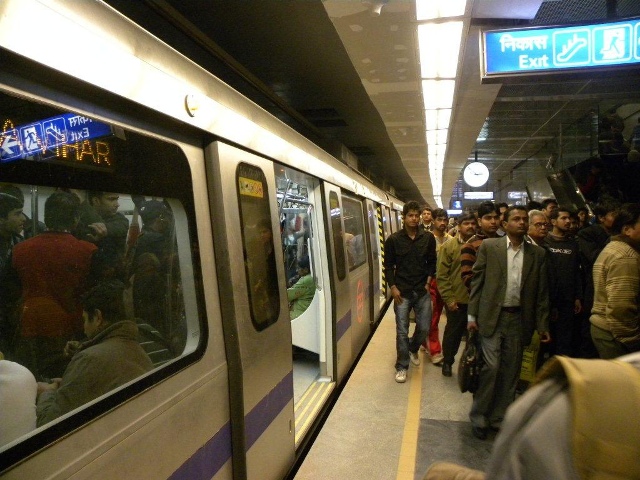Cabinet approves two new corridors of Delhi Metro's Phase-IV project
Total project cost of these two corridors of Delhi Metro's Phase - IV project is Rs.8,399 crore, which will be sourced from Government of India, Government of Delhi, and international funding agencies.

- Country:
- India
The Union Cabinet chaired by Prime Minister Shri Narendra Modi approved two new corridors of Delhi Metro's Phase-IV project which are expected to further improve the Metro connectivity in the national capital.
The two corridors are;
a) Inderlok - Indraprastha 12.377 km
b) Lajpat Nagar - Saket G Block 8.385 km
Project Cost & Funding
Total project cost of these two corridors of Delhi Metro's Phase - IV project is Rs.8,399 crore, which will be sourced from Government of India, Government of Delhi, and international funding agencies.
These two lines will comprise of 20.762 kms. The Inderlok - Indraprastha corridor will be an extension of the Green Line and will provide interchange with the Red, Yellow, Airport Line, Magenta, Violet and Blue Lines, while the Lajpat Nagar - Saket G Block corridor will connect the Silver, Magenta, Pink and Violet Lines.
The Lajpat Nagar - Saket G Block corridor will be entirely elevated and will have eight stations. The Inderlok - Indraprastha corridor will have 11.349 kms of underground lines and 1.028 kms of elevated lines comprising of 10 stations.
The Inderlok - Indraprastha Line will provide enhanced connectivity to the Bahadurgarh region of Haryana as commuters from these areas will be able to travel on the Green Line to directly reach Indraprastha as well as various other areas of central and east Delhi.
Eight new interchange stations will come up on these corridors at Inderlok, Nabi Karim, New Delhi, Delhi Gate, Indraprastha, Lajpat Nagar, Chirag Dilli and Saket G Block. These stations will significantly improve the interconnectivity among all the operational lines of the Delhi Metro network.
The Delhi Metro is already constructing a network of 65 kilometres as part of its fourth phase of expansion. These new corridors are expected to be completed by March 2026 in stages. Presently, the DMRC operates a network of 391 kilometres consisting of 286 stations. The Delhi Metro is now one of the fastest growing Metro networks in the world.
The Delhi Metro Rail Corporation Limited (DMRC) has already started the pre-bid activities and preparation of Tender documents.
(With Inputs from PIB)
- READ MORE ON:
- Delhi Metro
- Cabinet










